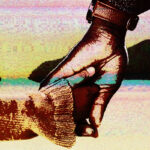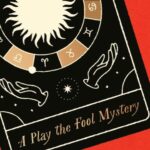The Encyclopedia of Science Fiction is the Best Place on the Internet
Self-Referential, Argumentative, and Never Dispassionate
Of all the things you can read on the internet, The Encyclopedia of Science Fiction is one of the only good ones. In perpetual conversation with itself, ever growing and expanding—perhaps threatening, in its accumulated obsessions, to become self-aware—this index of the fantastic documents possible pasts and futures alike. It bristles with Tarzan arcana and the history of Croatian science fiction. It features enthusiastic discussions of Medieval futurism, feminism, bug-eyed monsters, dream hacking, and Leonardo da Vinci. Almost any sci-fi author you care to mention has an entry there, alongside accounts of many authors no one cares to mention at all. That you could be reading it right now goes without saying, since in some alternate universe you surely are.
While the SFE’s purview is “science fiction” broadly conceived, its articles have warring impulses. On the one hand, they aim to educate. Within these pages, you’ll find explanations of numerous literary tropes, both those well-known (the generation starship used in many tales of space exploration) and those more obscure (a jonbar point, or the small, seemingly insignificant moment that proves to be the difference between two alternate histories, in time-travel stories). But when the entry on Gene Wolfe declares that he is “quite possibly” science fiction’s most important writer, no shy excuse for this partiality follows. More than informative, this encyclopedia enthuses, anoints, or dismisses. What it has to say about Joanna Russ, Octavia Butler, Kim Stanley Robinson, and J.G. Ballard is aimed squarely at canons and reputations. The SFE quarrels its way into being encyclopedic.
Originally published in physical form in 1979, the Encyclopedia of Science Fiction won a Hugo award for best nonfiction book in 1980. A second edition followed in 1993, with a CD-ROM supplement a few years later. The encyclopedia won another Hugo in 1994, and a decade later began its migration online, where it launched in 2011 as a precursor to its current digital form. No paywall bars access to this archive. Though you can donate money to support it, the UK publisher, Gollancz, in collaboration with the SF Gateway, keeps it in the black. To say the encyclopedia has flourished would be an understatement. According to the site’s statistics, as of late July 2018, the SFE contains 17,516 entries totaling over 5.5 million words.
“That you could be reading the Science Fiction Encyclopedia right now goes without saying, since in some alternate universe you surely are.”I got nearly all of the information in the preceding paragraph from the SFE’s entry on itself. That should indicate, I hope, its ambition to be all-encompassing. This is an encyclopedia with its own selfie included. Its editors also maintain a statistics page, which they update regularly with figures on the number and composition of their articles. They update individual entries as well, and every version of each article remains accessible via links at the bottom of any given page. If you choose to do so, you can read all 87 iterations of, say, the article on Isaac Asimov. While this self-documenting tic might look funny, it gives way to something rich and strange—namely, to those who write these entries in the first place.
Peter Nicholls comes to mind, as does David Langford, but among all the contributors, one stands out. His name is John Clute. A Canadian critic and founding editor of the encyclopedia, he has written 6,644 of its entries by himself. The second-most frequent contributor, Langford, has written 582. While the encyclopedia’s FAQ page emphasizes that many of Clute’s entries run on the short side and that others have tweaked or contributed to his overall work, there’s no doubt that he’s written 2 million more words for the site than any other contributor.
And how baroque those words are. Nowhere is Clute’s style more apparent than in the encyclopedia’s entry on . . . John Clute. Naturally enough, in a Philip K. Dick kind of way, Clute wrote it himself. He refers to his early criticism as mostly practical, “despite some studiously flamboyant obscurities.” It’s a joke at his own expense, but only someone who presides over an encyclopedia could use it for florid self-deprecation. Clute has also written a blunt but admiring entry on his current partner, the novelist Elizabeth Hand. On Hand’s first novel, he comments, “the prose is occasionally very powerful, but the book is rather too long.” I’ll leave it to more able critics to tease out the implications, but the call appears to be coming from inside the house.
And yet.
In an entry on Octavia Butler’s Patternist novels, Clute emphasizes that the “strength of the Patternist books lies not in the somewhat melodramatic action template put in place in [the] first published volume, but in Butler’s capacity to inhabit her venues with characters whose often anguished lives strike the reader as anything but frivolous.” Call it a long sentence, call it oddly backhanded; you’d be right. But Clute’s comment is right, too. It captures the blend of earnestness and horror that works so well in Butler’s fiction. Anguish animates her stories, and there are few who write with such compassion about the intimacies of alien (and alienated) life, the fear and necessity of contamination.
“Making no effort to avoid the partisanship that’s a hallmark of being a fan, the SFE possesses the kind of purity you can only get from corrupt endeavors.”Clute’s description of Joanna Russ’s The Female Man as “savage and cleansing in its anger” likewise cuts right to her appeal. Like a magician performing a trick, Clute can conjure an entire reading list in only a sentence or two, as when he declares that Karen Joy Fowler’s excellent novel, Sarah Canary, is, with John Fowles’s A Maggot, “the finest First Contact novel yet written, certainly from a non-genre perspective.” Entire worlds appear in commentary like this.
The epitome of Clute’s style and of the SFE’s self-documenting habits come out in one of the few places you might actually be able to guess: the entry on Ursula K. Le Guin, of which there are 62 versions. A titan of the genre, Le Guin died this year at the age of 88. Her entry in the SFE was revised almost immediately, not only to reflect her passing but to reformulate the gist of its argument. In the months since then, an editor—likely Clute—has revised the entry a further seven times. It’s the last paragraph that has most shifted.
Before her death, Le Guin’s entry offered an open-ended criticism of her work. Its final paragraph read:
John Clute once wrote of her as “eminently sane, humanitarian, concerned” but went on to lament a “fatal lack of risk“. This may be overstatement, and its author would not now apply the comment to her work as a whole, but it pointed to a quality in her work that had been observed by other critics. It is true that Le Guin’s certainties could, perhaps, be more open to the random and the unpredictable. But can self-confidence justly be evidenced as a flaw?
Clute’s words appear in quotation marks. Though preserved, they are in question. Two days after Le Guin’s death, a new version of the entry removed the question about confidence altogether. I surprise myself every time I read it, because I find its brief metaphorical flourish moving:
It is true that Le Guin’s certainties could, perhaps, be more open to the random and the unpredictable. But those certainties were always subject to later scrutiny; the traces of her thoughts and her increasingly cogent rethinkings of old verities can be seen as marking a significant intellectual odyssey which reached harbour only with her death. Indeed, in this journey that extended nearly two decades into the new century, Le Guin more and more justified the role that had early in her career been granted her: as a speaker of wisdom.
The latest version of this paragraph fleshes out Le Guin’s role as an elder of American literature, singling out her essays and her thrilling speech at the 2014 National Book Awards. Introduced by Neil Gaiman, Le Guin went on to denounce profit and consumerism as forces that conspire against the freedom to make art and to make a living doing it. True opposition, she implied, is necessary. My favorite bit is the moment when she compares capitalism to another reality once thought impossible to undo: the divine right of kings.
That Clute’s phrase (“fatal lack of risk”) has retained its place in the entry on Le Guin, going back to 2011, seems almost apophatic. It looks like a reckoning, not simply with Le Guin, but with Clute’s earlier judgment. There’s no drama here, but the encyclopedia seems to be ever so slightly taking the piss out of Clute for making his pronouncement it in the first place, even as it raises a serious question about the kind of fiction Le Guin was apt to write. Clute appears to admit that he questioned Le Guin exactly because of her confidence. Or that he and others questioned her work because from the beginning it exhibited a quality that could only be accurately named as wisdom after Le Guin had aged and was being celebrated for her entire career.
As usual, the SFE talks to itself in a mirror. What it reflects in this case are the second thoughts and further refinements of the critical practice. I think Le Guin would approve. She tirelessly refined and rethought her own work. She seemed to quarrel with herself. Her devastating 1990 novel, Tehanu, revises the world she created in her first Earthsea trilogy nearly 20 years before. Her short story, “The Day Before the Revolution,” looks askance at the utopian society established in The Dispossessed.
Quarrels like these make for passionate reading, and they are the reason people write. Nothing settles for long in either case. The SFE in particular fuses fandom with criticism, with a fervency familiar from other corners of the science fiction world. Making no effort to avoid the partisanship that’s a hallmark of being a fan, the SFE possesses the kind of purity you can only get from corrupt endeavors. It’s by turns cranky, self-doubting, and ultra-confident, but it couldn’t be more deeply engaged with the genre of science fiction. I’ve never gotten the impression that the World Book or Encyclopedia Brittanica was written by enthusiasts of life on planet earth. Those were done for the science and pleasure of cataloging. The SFE, on the other hand, really loves something.




















